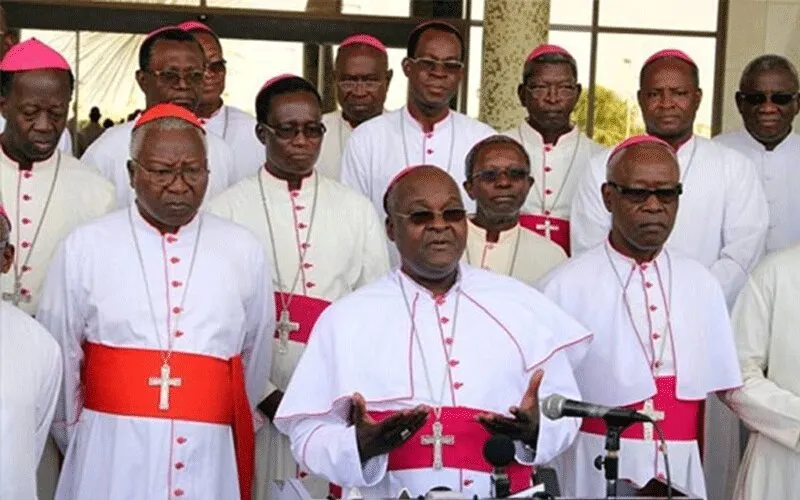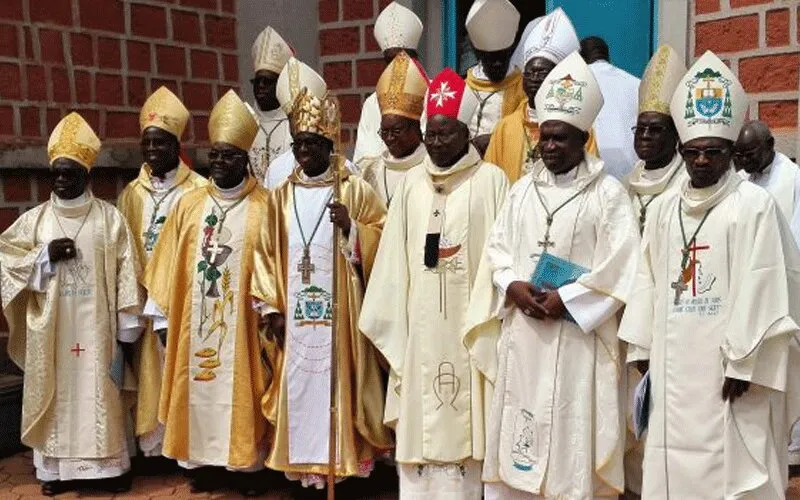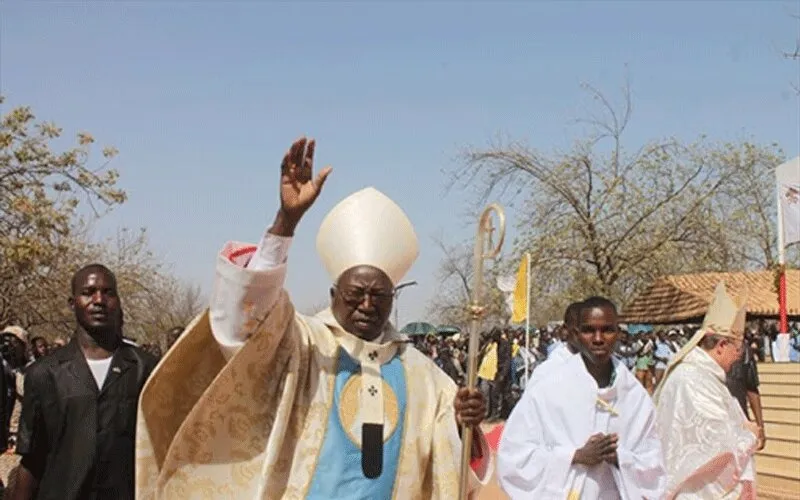
In their November 1 statement signed by CEBN President, Bishop Laurent Dabiré, the Bishops say that the people of God in Burkina Faso should learn from the experience of the country’s past and gain maturity in the upcoming election.
“The political history of our country has been marked by crises of varying depths, the most recent being the crisis following the popular uprising of 30 and 31 October 2014,” the Bishops recall in the collective statement.
They continue, “The whole world watched us then, curious or concerned to know on which road the citizens of Burkina Faso, which some called or still call a poor and landlocked country, would embark on their future.”

(Story continues below)
“The spirit of dialogue and concertation then prevailed and we showed the world that it is possible, despite limited means, to take up challenges that, at first glance, may seem impossible to overcome,” CEBN members add.
They note that “this gain, which is to our country's credit, must be capitalized upon and guide us resolutely and definitively in the consolidation of a State governed by the rule of law, characterized by the stability of its institutions and the maturity of those who animate the socio-political life of the Nation.”
“It is also in this spirit that we appeal to the leaders that the next elections will allow us to designate so that they work to bring back peace by working for justice and reconciliation,” the members of CEBN say.
Highlighting another condition for peaceful elections, the Bishops in the two-nation Conference want the Burkinabé to work toward a “country of men of integrity and a united country.”

“The history of our country is that of a people who have always known how to make cultural, ethnic or religious differences that characterize its citizens, a source of wealth and an example of cohesion in the eyes of the world,” the Bishops say in their November 1 statement.
They add, “Differences of political opinion are also supposed to be a source of wealth and not a source of division, a means of manipulating opinion or a means of subversion.”
The Bishops caution politicians and members of the public in the West African nation against seeing “the difficult times we are going through as opportunities to make the most of them for oneself or one's party.”
“Rather, every citizen should invest and take pride in working for the good of all, for the honour of the country,” the members of CEBN say.

Making reference to Pope John XXIII, the Bishops invite citizens to massively participate in the elections saying, “Voting is one of the pillars of all democratic institutions, as well as one of the best guarantees of the sustainability of democracy. We are then called and urged to participate in it to continue building our Nation.”
They however decry persistent insecurity in the West African nation that could hinder the electoral process saying, “We are surrounded on all sides by the hydra of terrorism; we do not stop counting our dead and seeing hundreds and thousands of our compatriots, particularly from the regions of the Sahel, persecuted, dispossessed of their property and forced to be refugees in their own homeland; the figures relating to this crisis are very significant despite their differences.”
“It is in this context of insecurity aggravated by the COVID-19 pandemic, which has mobilized and continues to mobilize the health personnel to whom we pay tribute for their valour, patriotism and humanism, that the voice of the Bishops of Burkina Faso wants to be that of trust and hope on the eve of the elections,” they say.
They go on to explain that “the situation in which our country finds itself makes us aware that the rights that we often consider to be the most obvious are not definitively guaranteed.”

Referencing human rights, the Bishops continue, “We must work every day to preserve and consolidate them, preventing the dark forces that are working to deprive us of their enjoyment and to tip our country into other inextricable situations.”
“We, the Bishops of Burkina Faso, therefore invite all those involved in political life to rigorously apply the texts in force and to engage in a dialogue, which takes into account the particular context in which our country is living,” they say in their collective statement.
They add, “Let us commit ourselves to guarantee our country lasting security and peace. Let us be citizens who love solidarity, justice and social cohesion and let us give our people, through a democratic process characterized by transparency and integrity, worthy representatives who will preside over their destiny, to lead them towards an ever-brighter future.”

To all believers of the different religious denominations, the Bishops appeal for “unceasing prayer that God may accompany these elections.”
“We invoke upon each one of you and upon Burkina Faso the abundance of divine blessings,” the members of CEBN implore in their November 1 statement shared with ACI Africa.
Jude Atemanke is a Cameroonian journalist with a passion for Catholic Church communication. He holds a Bachelor’s Degree in Journalism and Mass Communication from the University of Buea in Cameroon. Currently, Jude serves as a journalist for ACI Africa.
















